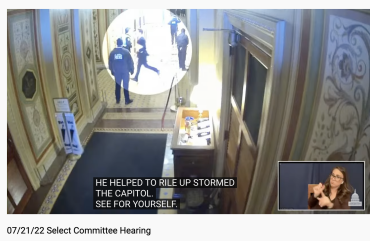On the Internet, they always knew you were a dog
 This week: short cuts.
This week: short cuts.
Much excitement that Disney's copyright in the first Mickey Mouse film will expire in...2024. Traditionally, Disney would be lobbying to extend copyright terms - as it did in 1998, when the Copyright Term Extension Act lengthened it to life plus 70 years for authors and 95 years for corporations. In 1928, when Disney released Mickey's first cartoon, copyright lasted 28 years, renewable once. In 1955, Disney duly renewed it until 1984. The 1976 Copyright Act extended that until 2003, and the 1998 law pushed it through 2023. Other companies also profit from these extensions, but Disney is the most notorious.
The losers have been us: the acts froze the public domain for decades. In the interim, as both the Guardian and the Authors Alliance report, Disney has registered trademarks in the character, and even shorn of copyright Mickey remains protected.
The weird reason Disney is unlikely to get another extension *this* time is that the US Republican party is picking a fight with Disney over LGBTQ+ rights. US Senator Josh Hawley (R-MO) is pushing a copyright term *reduction* bill as a *punishment*. I want to laugh at the bonkersness of this, but can't because: sucks to be the humans whose rights are caught in this crossfire. But yay! public domain.
***
Airlines do it. Scalpers do it. Even educated algorithms do it. Which is how this week angry Bruce Springsteen fans complained that concert tickets hit $5,500. The reason: Ticketmaster's demand-driven dynamic pricing. Spingsteen's manager, Jon Landau, called the *average* pricing of $200 "fair"; Ticketmaster says only 1% of tickets sold for over $1,000, and 18% sold for under $99.
A Ticketmaster option adjusts pricing to the perceived market. Those first in the queue when sales opened saw four-figure prices; waiting and searching would, NJ.com reports, have found other sites with more modest prices.
In the Internet's early days, many expected it to advantage consumers by making market information transparent. On eBay, this remains somewhat true. Elsewhere, corporate consolidation and automation have eliminated that insight. In the Springsteen case, as your hand hovers on the purchase button you have seconds to decide on the price in front of you. You aren't really paying for Springsteen, you're paying for *certainty*.
***
The 1998 copyright term extension coincided with the beginnings of the MIT Media Lab's Things That Think, which presaged today's "smart" Internet of Things. Coupling that with the nascent software industry move from purchase to subscription and the history of digital rights management, made limitations on ownership of *things* imaginable.
This week, BMW offered British drivers this exact dystopia: it will charge £10 per month for heated seats for those whose car, when new, didn't include them. Of course that means that all the necessary hardware infrastructure is present in every car, and BMW activates a subscription by toggling a line of code to "true" - an infuriating reason to pay extra.
***
The shrinking company Meta is unhappy about leap seconds, joining a history of computer industry objections to celestial mechanics. For computer folks, leap seconds pose thorny synchronization problems (see also GPS); for astronomers and physicists, leap seconds crucially align human time with celestial time. When I first wrote about this in 2005, here and at Scientific American, proposals to eliminate them were already on the table at the International Telecommunications Union. That year's vote deferred the decision to its 2015 World Radiocommunications Congress - 2014noted here in 2014 - which duly deferred it again to 2023. Hence the present revival.
Meta is pushing the idea of "smearing" the leap second over 17 hours, which sounds like the kind of magic technology that was supposed to solve the Northern Ireland-Brexit conundrum. Personally, I'm for the astronomers and physicists; as the pandemic, the climate, and the war remind, it's unwise to forget our dependence on the natural world. Prediction: the 2023 meeting will defer it again because the two sides will never agree. Different people need different kinds of time, and that's how it is.
***
The problem with robots and AIs is that they expect consistency humans rarely provide. This week, a chess-playing robot broke a seven-year-old's finger during a game in the Moscow Chess Open when the boy began his move faster than it was programmed to expect. As Madeline Claire Elish predicted in 2016 in positing moral crumple zones, the tournament organizer seemed to blame the child for not giving the robot enough time. Autonomous vehicle, anyone?
***
And finally: remaining a meme almost 30 years after its first publication in The New Yorker is Peter Steiner's cartoon of a dog at a computer telling another dog, "On the Internet no one knows you're a dog". It's a wonderful wish-it-were-truth. But it was dubious even in 1993, when most online contacts were strangers who could, theoretically, safely assume fake identities. However, it's hard to lie consistently over a period of time, and even harder to disguise fundamental characteristics that shape life experience. Today's surveillance capitalism would spot the dog immediately - but its canine nature would be obvious anyway from its knee-level world view. On the Internet everyone always knew you were a dog - they just didn't used to care.
Illustrations: US Senator Josh Hawley (R-MO), running to expand the public domain.
Wendy M. Grossman is the 2013 winner of the Enigma Award. Her Web site has an extensive archive of her books, articles, and music, and an archive of earlier columns in this series. Stories about the border wars between cyberspace and real life are posted occasionally during the week at the net.wars Pinboard - or follow on Twitter.